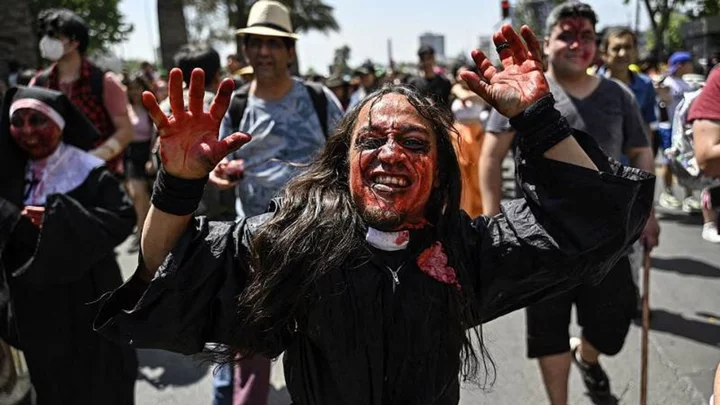Researchers in Haiti once scanned the brains of three people believed to be long-deceased individuals returning from the dead - or zombies.
In a study published in 1997, researchers investigated three such cases, using electroencephalography and DNA testing techniques to try and find a rational explanation for a Haitian Voodoo theory that the spirits of the dead can be captured by sorcerers called bokors, who use these souls to reanimate fresh corpses into zombies who walk around rural areas.
One case involved a woman who had died aged 30 and was spotted three years later by family members who recognised her because of a distinctive facial mark. A local court then authorised the opening of the woman’s grave, revealing it to be full of rocks.
Describing the 'zombie', the study authors explained that “she kept her head in a lowered position, and walked extremely slowly and stiffly, barely moving her arms.” She was also unable to communicate “but would occasionally murmur some incomprehensible but stereotyped words.”
But the scan showed her “electroencephalogram and central nervous system examination were unremarkable” and said she may have had catatonic schizophrenia, but couldn't explain how she came back from the dead.
Sign up to our free Indy100 weekly newsletter
They proposed that the woman might not have died at all, but may instead have been poisoned by a “neuromuscular toxin” to induce catalepsy and trick relatives into thinking she was dead. A lack of oxygen within the grave may have resulted in brain damage, thus explaining her zombie-like state when she was taken out of the grave.
Next, the study described a 26-year-old man who was seen at a local cockfight 19 months after being buried. The man’s uncle was subsequently found guilty of using sorcery to zombify the man, who was then kept chained to a log at his parents’ house.
But clinical examinations found nothing weird and the man was diagnosed with “organic brain syndrome and epilepsy.” And DNA testing revealed that he was not even the man who had died shortly beforehand.
In a similar case, a 31-year-old woman was identified as a villager who had been dead for 13 years. Once again, however, a medical examination revealed that she was a normal human while genetic analyses showed that she was not the dead individual after all.
The study authors concluded that “mistaken identification of a wandering, mentally ill, stranger by bereaved relatives is the most likely explanation.”
Have your say in our news democracy. Click the upvote icon at the top of the page to help raise this article through the indy100 rankings.

